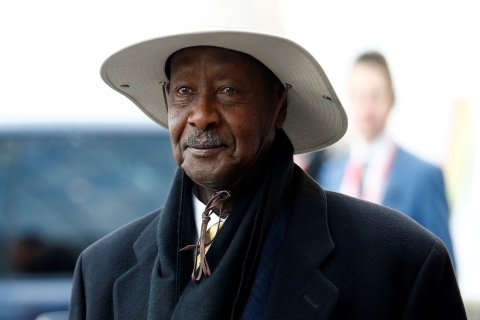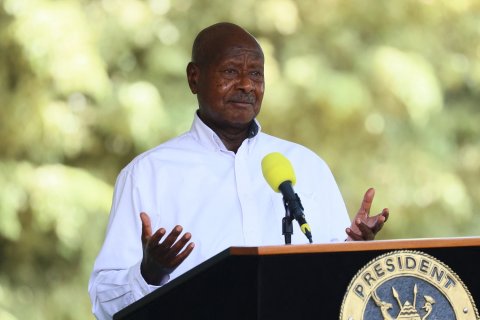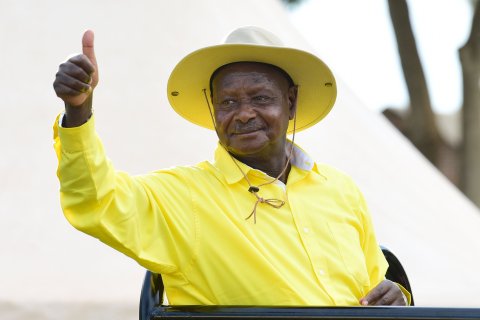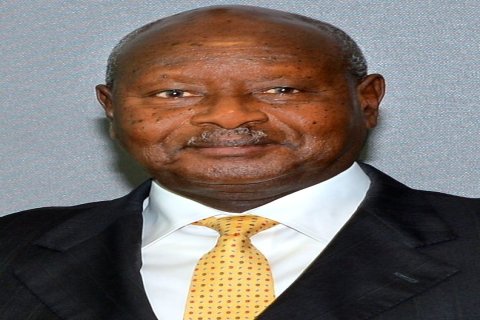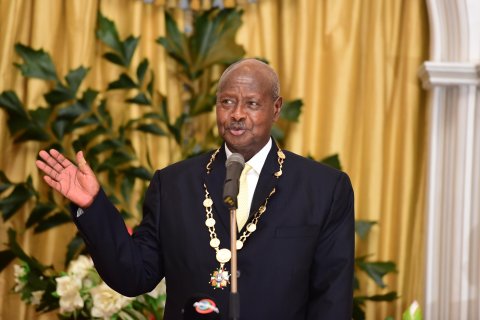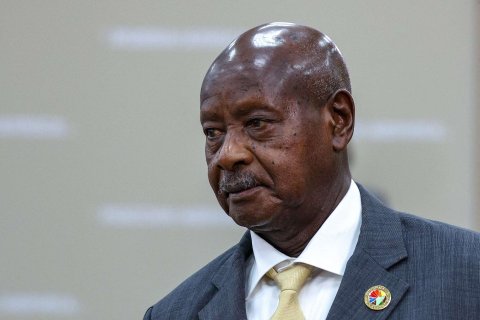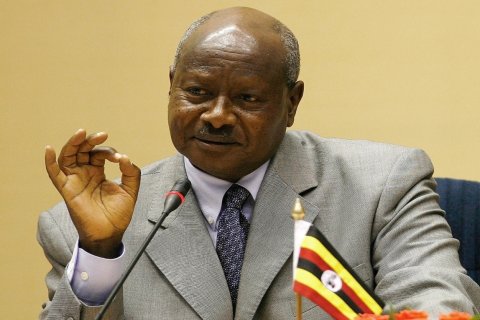Yoweri Museveni
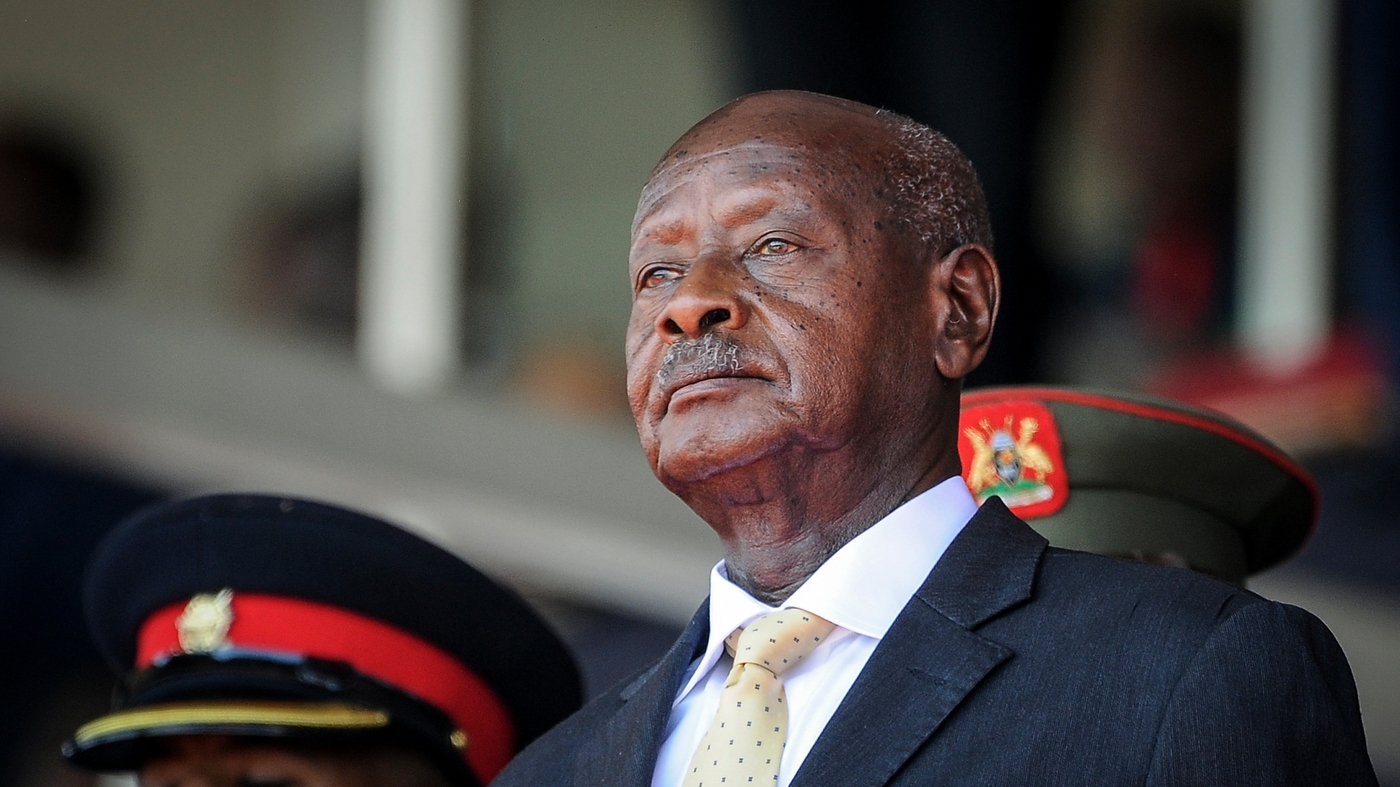
Yoweri Museveni
Full name: Yoweri Kaguta Museveni
Date of birth: September 15, 1944
Place of birth: Ntungamo, Uganda
Nationality: Ugandan
Political party: National Resistance Movement (NRM)
Spouse: Janet Museveni
Children: Four
Education: Dar es Salaam University, University of Nottingham
Occupation: Politician, military officer
Years active: 1971-present
Yoweri Kaguta Museveni is a Ugandan politician and military officer who has been the President of Uganda since 1986. He is the founder and leader of the National Resistance Movement (NRM), a political party that has been in power since 1986. Museveni is the longest-serving president of Uganda, and has been a controversial figure throughout his time in office.
Early Life and Education
Yoweri Museveni was born on September 15, 1944, in Ntungamo, Uganda. He is the son of Amos Kaguta, a cattle herder, and Esteri Kokundeka, a housewife. Museveni was raised in a Protestant family, and he attended Ntare School, a prestigious boarding school in Mbarara, Uganda. After graduating from Ntare School, Museveni went on to study at Dar es Salaam University in Tanzania, where he earned a degree in economics and political science. He later attended the University of Nottingham in the United Kingdom, where he earned a master's degree in development economics.
Political Career
Museveni began his political career in the early 1970s, when he joined the Front for National Salvation (FRONASA), a rebel group that was opposed to the government of President Idi Amin. In 1979, FRONASA and other rebel groups joined forces to overthrow Amin, and Museveni became the leader of the new government. However, Museveni's government was soon overthrown by a military coup, and he went into exile in Tanzania.
In 1981, Museveni returned to Uganda and founded the National Resistance Movement (NRM). The NRM launched a guerrilla war against the government of President Milton Obote, and in 1986, the NRM captured Kampala, the capital of Uganda. Museveni became the president of Uganda, and he has been in power ever since.
Presidency
Museveni's presidency has been marked by both progress and controversy. On the one hand, Museveni has been praised for his economic reforms, which have led to significant growth in Uganda's economy. He has also been praised for his efforts to combat corruption and improve education and healthcare in Uganda. On the other hand, Museveni has been criticized for his authoritarian rule, his suppression of political dissent, and his human rights abuses.
Museveni has been accused of rigging elections, suppressing the media, and intimidating his political opponents. He has also been accused of corruption, nepotism, and cronyism. In addition, Museveni has been criticized for his handling of the Lord's Resistance Army (LRA), a rebel group that has been active in northern Uganda for decades.
Legacy
Museveni's legacy is complex and controversial. He is a polarizing figure who has both supporters and detractors. His supporters argue that he has brought peace and stability to Uganda, and that he has improved the lives of Ugandans. His detractors argue that he is a dictator who has suppressed dissent and violated human rights.
Museveni's presidency has been a defining moment in Ugandan history. He has been in power for over 30 years, and he has had a profound impact on the country. Only time will tell how history will judge his presidency.

